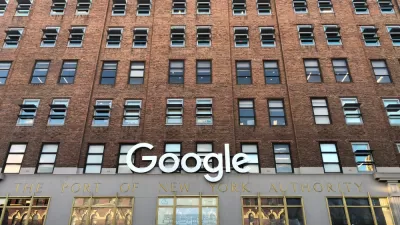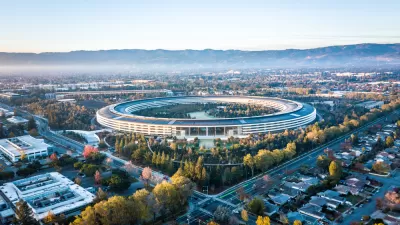In the first article of a series exploring how the physical structures that support the explosion in digital information are effecting the environment, James Glanz examines the wasteful manner in which technology companies consume energy.
The amount of energy needed to maintain the data centers supporting today's digital technology is staggering, writes Glanz. Individual data centers can burn enough energy to run a medium-size town and air quality violations have been stacking up in states with major data centers like Virginia and Illinois.
"Worldwide, the digital warehouses use about 30 billion watts of electricity, roughly equivalent to the output of 30 nuclear power plants, according to estimates industry experts compiled for The Times. Data centers in the United States account for one-quarter to one-third of that load, the estimates show."
According to Glanz, "[t]he inefficient use of power is largely driven by a symbiotic relationship between users who demand an instantaneous response to the click of a mouse and companies that put their business at risk if they fail to meet that expectation."
Should these unsustainable practices continue unchanged, warns Glanz, serious consequences could be in store for the industry. "It's just not sustainable," said Mark Bramfitt, a former utility executive who now consults for the power and information technology industries. "They're going to hit a brick wall."
Glanz's series has already attracted a great deal of debate on the Internet (no doubt using unimaginable amounts of electricity). Philip Bump at Grist has compiled a number of the responses.
Thanks to Emily Williams
FULL STORY: Power, Pollution and the Internet

Planetizen Federal Action Tracker
A weekly monitor of how Trump’s orders and actions are impacting planners and planning in America.

Chicago’s Ghost Rails
Just beneath the surface of the modern city lie the remnants of its expansive early 20th-century streetcar system.

San Antonio and Austin are Fusing Into one Massive Megaregion
The region spanning the two central Texas cities is growing fast, posing challenges for local infrastructure and water supplies.

Since Zion's Shuttles Went Electric “The Smog is Gone”
Visitors to Zion National Park can enjoy the canyon via the nation’s first fully electric park shuttle system.

Trump Distributing DOT Safety Funds at 1/10 Rate of Biden
Funds for Safe Streets and other transportation safety and equity programs are being held up by administrative reviews and conflicts with the Trump administration’s priorities.

German Cities Subsidize Taxis for Women Amid Wave of Violence
Free or low-cost taxi rides can help women navigate cities more safely, but critics say the programs don't address the root causes of violence against women.
Urban Design for Planners 1: Software Tools
This six-course series explores essential urban design concepts using open source software and equips planners with the tools they need to participate fully in the urban design process.
Planning for Universal Design
Learn the tools for implementing Universal Design in planning regulations.
planning NEXT
Appalachian Highlands Housing Partners
Mpact (founded as Rail~Volution)
City of Camden Redevelopment Agency
City of Astoria
City of Portland
City of Laramie





























